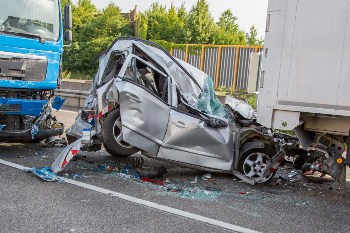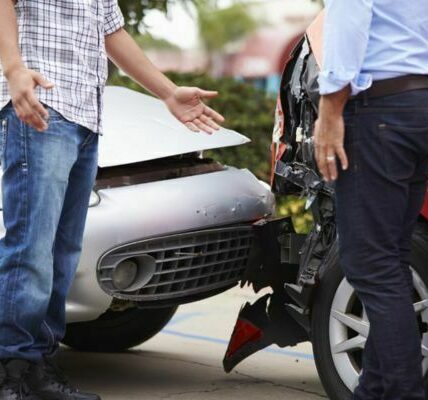When Trucks Collide: Navigating the Aftermath
Imagine this: A morning rush hour, the city humming, and then… bam. A truck crash. Lives shattered, property damaged. This isn't just metal crunching, it's human stories, hurt feelings, and heavy legal battles.
The Hurt: Beyond the Metal
Truck collisions are a real issue, a serious problem in our modern world. They can lead to immense pain, injuries, and loss. The sheer size of trucks plays a huge role here, it can be terrifying (scary), imagine what a massive, speedy truck does at high speeds to the driver of the little car on the road.
-
Physical Injuries: Broken bones, severe trauma, whiplash (ouch!)… These kinds of injuries are common, resulting from a wreck like this.
-
Emotional Trauma: Anxiety, depression, loss of sleep; the mental side effects aren't often spoken of but are super painful and sometimes hard to deal with, these things stay with the people involved for long, long time. (Imagine). It takes time and support to heal.
-
Property Damage: Cars, trucks, roads… it’s very destructive. The cost can add up quickly and can cause lots of distress for all the victims.
Understanding the Collision

Source: amarolawfirm.com
What goes wrong? Many different scenarios lead to truck collisions.
Here is a breakdown for clarification
-
Driver Fatigue: Drivers can get exhausted. Safety comes first when you are working hard.
-
Weather: Snow, rain, fog; weather makes roads super tricky, accidents can happen unexpectedly when roads get slippery
-
Mechanical Failure: Truck problems can happen – they’re big machines! A big failure (accident) means it impacts everyone on the road
-
Inexperience: New truck drivers; this takes time. Some mistakes happen in training, but with lessons (training and practice), drivers learn the routes.

Source: kaiserlawoffice.com
Who Gets the Blame?
Determining who is at fault can be challenging. It is a complex (hard) task for the authorities and/or investigators. Multiple perspectives of people involved are important and necessary.
Reviewing Case Studies: Common Factors

Source: ytimg.com
-
Distracted driving: Cell phone use. Some drivers, when busy (like sending texts, calling on phone etc), sometimes have an accident due to their inability to concentrate or react on time, due to carelessness, that also adds stress and anxiety. This leads to huge responsibility from the law.
-
Following Distance: If you follow too closely (this can mean not giving the person or vehicle behind enough space when braking, to avoid crash situations). That might sound so silly, but following closely makes things terrible in case the leading driver has sudden issues to slow down unexpectedly, or has to swerve or brake suddenly (for the drivers in the vehicle behind the vehicle being followed/in front), making such accidents a big danger, that needs people’s proper care.
-
Speed: Racing the traffic is never a smart choice. This adds huge risk on everyone’s life, if driving at high speed (when it is not appropriate for that route or time), it makes accident chances incredibly high.
Table 1: Common Factors and Accidents:
| Factor | Effect |
|---|---|
| Distracted Driving | Collision due to not giving full attention |
| Following Too Close | Accidents that happen with no gap, causing rear-end collisions |
| Speed | Collision chances increasing when driving in haste |
The Role of Legal Counsel
After an accident, having a truck collision lawyer on your side can make all the difference.
-
Gathering Evidence: The lawyer looks into what exactly happened, who’s to blame.
-
Understanding Laws: The lawyers are skilled in figuring out all the rules that might apply. This helps a lot for understanding (knowing) who to pursue legal actions against, (which might need to be an action to resolve an ongoing disagreement between individuals or companies).
-
Negotiating with Insurers: They fight to get you fair compensation; they are often skilled to bring things together on their end. Insurers might be trying to avoid paying fairly, which leads to complications
-
Representing Your Case: A truck accident lawyer fights (stands) for their client to make sure they get the support that they are legally deserved or rightful.

Source: morellilaw.com
Questions for Clients:
-
"What are your injuries, how were you feeling (before, during and after) and can you show any documents regarding the situation?"
-
"When did this happen, where, and what do you feel about how this happened"
-
"Describe exactly what happened to you during and around that accident."
-
"Who was driving in what?" (Who owned the vehicles or is responsible for maintenance?).
-
"Have you gathered anything, such as videos or any proof of accidents and damage (including photos?)"

Source: fosterwebmarketing.com
Client Testimonials
"After my husband got hurt (severe injury) by a big truck accident, [lawyer's name] came through in the best way possible. I was shocked to find out, honestly, it helped us in getting support. (very satisfied), said Maria from Pennsylvania.
John, in Illinois, shares, "[Lawyer's name] explained things clearly and straightforward, it gave us such relief with what we’ve done before."
Financial Recovery and Resources
Truck crashes often result in heavy medical expenses, lost wages, and other substantial costs. Financial recovery might take the time, depending on what you have as evidence, the conditions, and any laws in the area, also considering various other situations like family situations, financial conditions, (and personal experiences.)
-
Medical Bills: These will typically add up from hospitals (from surgeries). They can take ages to finish as well.
-
Lost Wages: Income loss during time taken off from work while recovering from an accident/injury. This might need special circumstances and attention to details and a proper way to go.
-
Pain and Suffering: Additional amounts to be given as a recompense for distress and other sufferings.
Tips for Staying Safe
Avoid risks for all kinds of vehicle crashes
-
Stay Alert: Pay attention to driving and make sure to stay updated for changing conditions.
-
Keep Safe Distances: Always respect safe distances (do not crowd the roads). This also can apply on roads or sidewalks and around streets for other forms of vehicles. This is super critical when around bigger or larger vehicles
-
Be Careful in Weather: In hazardous weather (in situations like fog or heavy rain or snow, please take additional care, to be more aware when driving in such circumstances).
-
Maintain a Smooth Driving Style: Avoiding sudden accelerations or braking makes the roads safer
In conclusion, truck collisions are significant events, affecting countless individuals and communities. Awareness, understanding the legal complexities, and being prepared, and prompt, or timely responses will give you (in a safe way), good control to minimize their effects. Seeking appropriate support (lawyer or otherwise) is vital when you or those around you encounter such serious issues/disasters. A lawyer or a financial adviser helps when you’re looking into legal or financial recourse or alternatives to situations.




